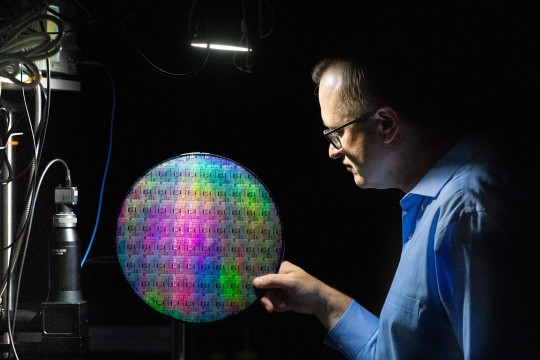Computer engineering becomes part of inaugural program focused on neuromorphic technologies
RIT becomes part of new BrainChip Network to educate next generation engineers advancing bio-inspired artificial intelligence
Rochester Institute of Technology recently became one of the inaugural academic partners in the BrainChip University AI Accelerator Program.
As part of the university-corporate partnership, RIT’s computer engineering program will receive hardware—neuromorphic chips—as well as lecture modules for classes detailing how the novel chips can be programmed and used to provide neuromorphic computing solutions to real-world problems. Content and hardware will be available for use in the spring semester.
BrainChip is one of the country’s earliest commercial producers of neuromorphic computing technologies. The company will seek feedback from faculty and students about the technology and new ideas for training tomorrow’s workforce in neuromorphic computing, said Cory Merkel, assistant professor of computer engineering in RIT’s Kate Gleason College of Engineering.
“Today there are only a few companies producing the chips, many are built by companies such as Intel and IBM. These are available for research, but aren’t suitable for introductory courses like ours,” said Merkel. “This is an opportunity for our students to do hands-on work in neuromorphic computing, which is still a relatively new field.”
Neuromorphic computing, sometimes referred to as brain-inspired computing, is a sub-field of artificial intelligence and is an interdisciplinary approach to developing computing infrastructure. The physical, neural network architecture and its complex processing mechanisms are inspired by the learning mechanisms in the human brain—its evolutionary ability to process multiple data points and signals efficiently.
Students will be able to use the chip technologies built on neuromorphic computing functions for projects and within research areas. RIT has a growing and vital AI community. This collaboration could continue to enhance the community with cross university partnerships among the BrainChip AI Network and with the company itself.
“The closer our students are to industry in their studies, the better positioned they are to accomplish projects and responsibilities once they leave RIT and enter companies,” said Merkel.





